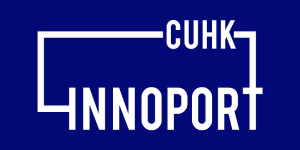A general approach to designing agents to switchably modulate protein-protein interactions in vivo and ex vivo
[Licensing negotiation in progress]
[Invitation for Expression of Interest- Deadline: 23 February 2025]
We are inviting expressions of interest (EoI) for commercializing “A general approach to designing agents to switchably modulate protein-protein interactions in vivo and ex vivo” technology. The innovation is developed by Professor LAI Hei Ming, Professor of Department of Chemical Pathology of The Chinese University of Hong Kong (CUHK Reference: 24/MED/1361).
The Technology
A rational, generalizable strategy for specific modulation of protein-protein interactions, reactions, localization, and transport is the holy grail for pharmaceutical development and biotechnology industries. We repeat here a general strategy to design an agent for the predictable modulation of protein-protein interaction in in vivo and ex vivo settings amid complex environments. Specifically, we discovered a compound class where all protein-protein interactions in its close vicinity (typically within a few nanometres in radius) will be inhibited, and hence related reactions, localization, and transport phenomena. Our strategy involves conjugating this generally inhibitory compound class to an affinity module to target any proteins of interest in diverse settings, achieving specific yet predictable protein-protein interaction inhibition. It is also possible not to target the binding protein partners, but a spatial location (e.g., on an organelle’s surface) to inhibit all protein-protein interactions near it. Finally, by complexing this compound class with a complementary molecule, the inhibitory effect of our compound can be switched off, achieving reversibility of protein-protein interaction inhibition on-demand.
Commercialization
The technology is now available for licensing on an exclusive basis. In order to fully realize the benefit of the technology, we expect substantial investment is necessary to enable further research and development. In addition to the financial commitment, the licensee is expected to have the appropriate expertise as well as plans in marketing and strategizing the end product to ensure successful transfer of the technology to the society. Previous or existing business involvement and experience in this area is a plus.
This invitation of expression of interest is without prejudice. We also stress that this invitation is not a tender, and the University is not bound to accept any offer, or to accept the highest monetary offer, as there are additional considerations (such as the widest possible benefit to the community) that we, as a public institution, will need to take into consideration.
A general approach to designing agents to switchably modulate protein-protein interactions in vivo and ex vivo
[Licensing negotiation in progress]
[Invitation for Expression of Interest- Deadline: 23 February 2025]
We are inviting expressions of interest (EoI) for commercializing “A general approach to designing agents to switchably modulate protein-protein interactions in vivo and ex vivo” technology. The innovation is developed by Professor LAI Hei Ming, Professor of Department of Chemical Pathology of The Chinese University of Hong Kong (CUHK Reference: 24/MED/1361).
The Technology
A rational, generalizable strategy for specific modulation of protein-protein interactions, reactions, localization, and transport is the holy grail for pharmaceutical development and biotechnology industries. We repeat here a general strategy to design an agent for the predictable modulation of protein-protein interaction in in vivo and ex vivo settings amid complex environments. Specifically, we discovered a compound class where all protein-protein interactions in its close vicinity (typically within a few nanometres in radius) will be inhibited, and hence related reactions, localization, and transport phenomena. Our strategy involves conjugating this generally inhibitory compound class to an affinity module to target any proteins of interest in diverse settings, achieving specific yet predictable protein-protein interaction inhibition. It is also possible not to target the binding protein partners, but a spatial location (e.g., on an organelle’s surface) to inhibit all protein-protein interactions near it. Finally, by complexing this compound class with a complementary molecule, the inhibitory effect of our compound can be switched off, achieving reversibility of protein-protein interaction inhibition on-demand.
Commercialization
The technology is now available for licensing on an exclusive basis. In order to fully realize the benefit of the technology, we expect substantial investment is necessary to enable further research and development. In addition to the financial commitment, the licensee is expected to have the appropriate expertise as well as plans in marketing and strategizing the end product to ensure successful transfer of the technology to the society. Previous or existing business involvement and experience in this area is a plus.
This invitation of expression of interest is without prejudice. We also stress that this invitation is not a tender, and the University is not bound to accept any offer, or to accept the highest monetary offer, as there are additional considerations (such as the widest possible benefit to the community) that we, as a public institution, will need to take into consideration.




